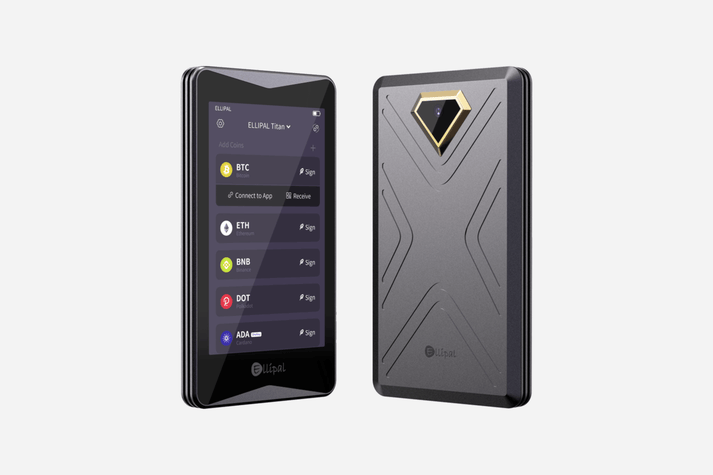Unlocking the Secrets of Hardware Wallets: Your Ultimate Guide to Secure Crypto Storage!
As the world of cryptocurrency continues to evolve, the importance of secure storage solutions has never been more critical. With the rise in cyber threats and hacking incidents, individuals holding digital assets are increasingly seeking ways to protect their investments. Enter the hardware wallet—a specialized device designed to keep your cryptocurrencies safe from prying eyes and malicious software. In this article, we will explore what a hardware wallet is, how it functions, and the myriad of benefits it provides. Additionally, we’ll share personal experiences that highlight the necessity of secure crypto storage, ensuring you have all the information you need to make an informed decision about your digital assets.

What is a Hardware Wallet?
A hardware wallet is a physical device that securely stores your cryptocurrency private keys offline. Its primary purpose is to protect your digital assets from online threats, making it a popular choice among crypto investors. Unlike software wallets, which are applications that can be installed on computers or smartphones, hardware wallets are standalone devices that offer a higher level of security. You can think of a hardware wallet as a safe for your cryptocurrencies; it keeps your keys secure and allows you to access your funds without exposing them to the internet. Additionally, paper wallets, which are another form of storage, involve printing your keys on paper. While they can be secure, they lack the convenience and features offered by hardware wallets, such as easy transaction signing and compatibility with multiple cryptocurrencies.
How Does a Hardware Wallet Work?
The inner workings of a hardware wallet are both fascinating and complex. At the core of its functionality is the process of key generation—a secure way to create the unique cryptographic keys necessary for accessing your digital funds. When you set up a hardware wallet, it generates a pair of keys: a public key, which can be shared with others to receive funds, and a private key, which must remain confidential as it allows you to spend those funds. The hardware wallet securely stores the private key within its own hardware, meaning it never leaves the device, not even during transactions. When you want to transfer cryptocurrency, the wallet signs the transaction directly on the device, ensuring that your private key is never exposed to potentially compromised software or online connections. This level of security is what distinguishes hardware wallets from their software counterparts, providing peace of mind to users.
Benefits of Using a Hardware Wallet
Using a hardware wallet comes with a plethora of advantages that make it an attractive option for anyone serious about securing their cryptocurrency investments. First and foremost, the enhanced security feature is a significant draw; since hardware wallets store private keys offline, they are immune to malware and phishing attacks that target online wallets. Additionally, these devices are user-friendly, often equipped with intuitive interfaces that make managing your assets straightforward, even for beginners. Most hardware wallets support multiple cryptocurrencies, allowing users to manage various digital assets in one place. This versatility is a considerable advantage over paper wallets or software wallets, which may only support a limited number of coins. A friend of mine who was initially hesitant about using a hardware wallet shared how it transformed their approach to crypto management. After experiencing a few close calls with online scams, they felt a newfound sense of control and security with their hardware wallet, ultimately leading to a more confident investment strategy.
Choosing the Right Hardware Wallet
Selecting the right hardware wallet can feel overwhelming given the variety of options available. To make an informed choice, it’s essential to consider several factors. Security features should be at the top of your list; look for wallets that offer robust encryption and reliable backup options. The user interface is also important—choose a wallet that you find easy to navigate, as this will enhance your overall experience. Compatibility is another crucial factor; ensure that the hardware wallet supports the cryptocurrencies you intend to store. Once you have narrowed down your options, take the time to research and compare different models. Read user reviews and look for insights on the performance and reliability of each wallet. A fellow crypto enthusiast once told me about the importance of community feedback in their decision-making process, highlighting how it helped them avoid pitfalls and choose a wallet that suited their needs perfectly.
Secure Your Crypto with a Hardware Wallet
In summary, hardware wallets represent one of the most secure methods for storing cryptocurrency, providing users with peace of mind amidst growing cyber threats. We’ve explored the definition, functionality, and key benefits of using a hardware wallet, as well as guidance on how to choose the right one for your needs. As technology continues to advance, we can expect ongoing developments in hardware wallet features, making them even more user-friendly and secure. If you are looking to safeguard your digital investments, consider implementing a hardware wallet into your strategy. Your future self will thank you for taking the necessary steps to protect your financial assets in this rapidly changing digital landscape.








